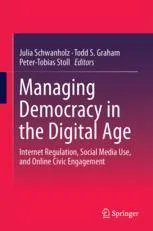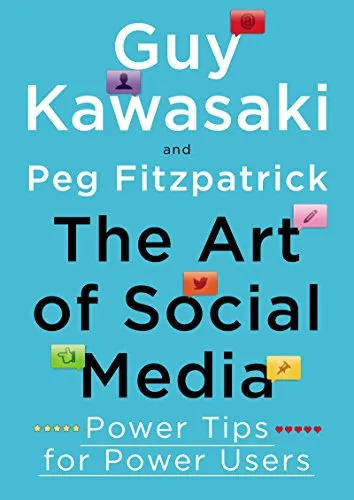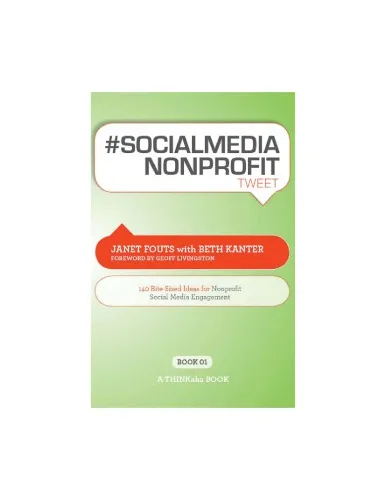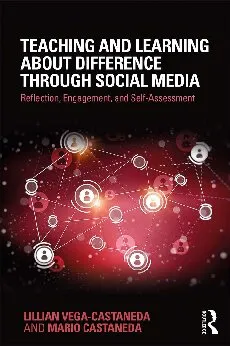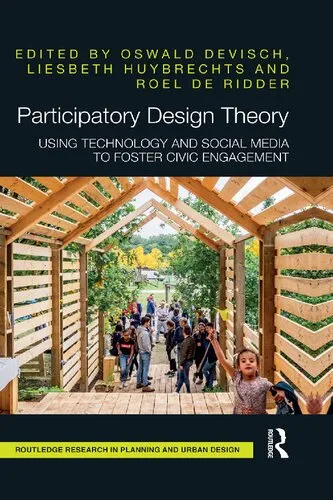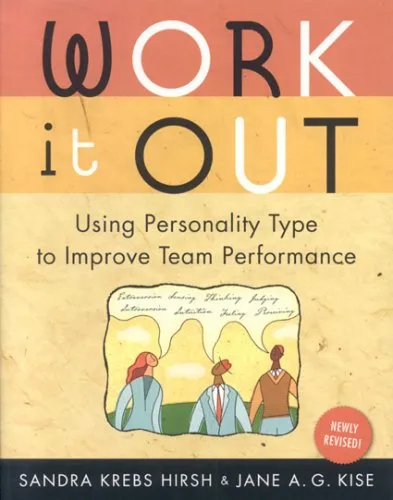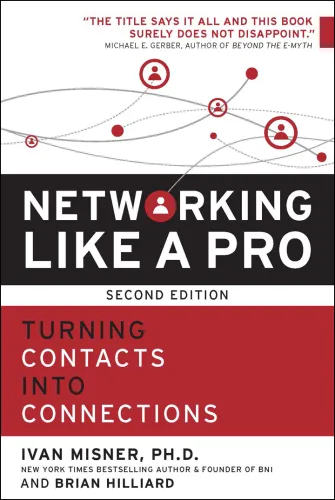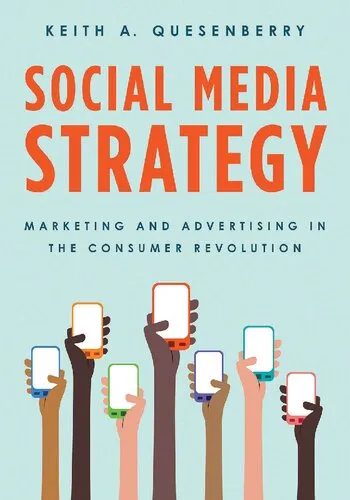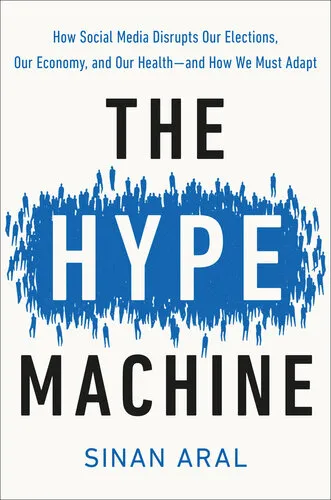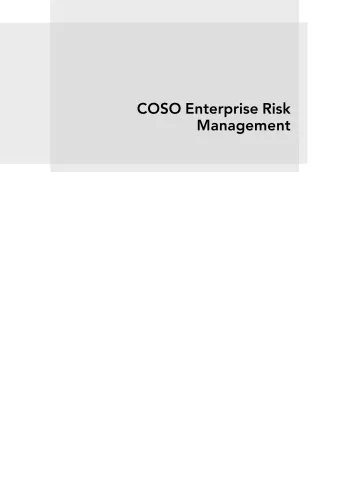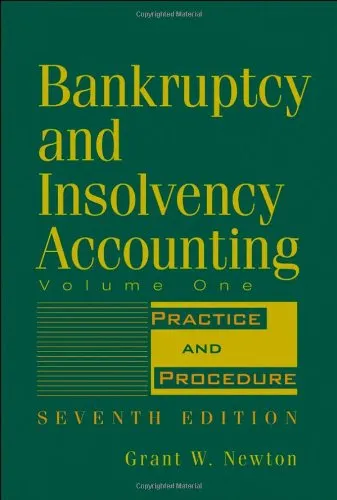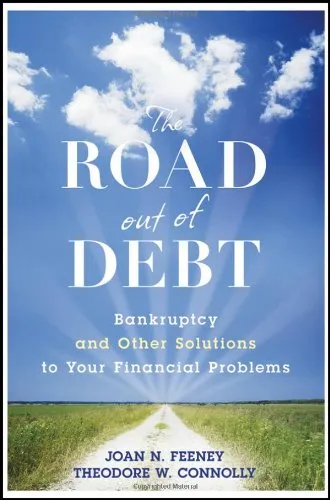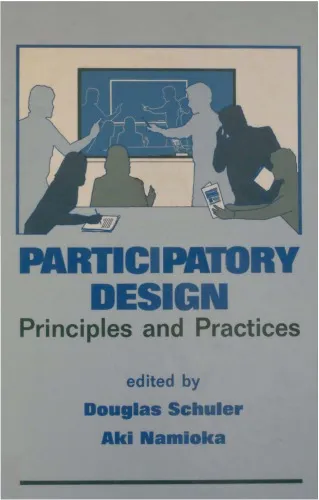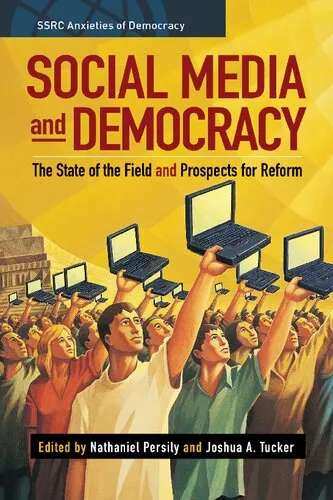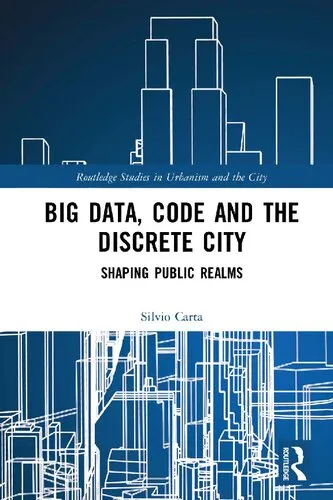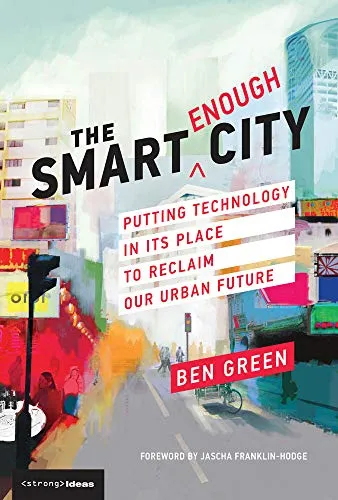Managing Democracy in the Digital Age: Internet Regulation, Social Media Use, and Online Civic Engagement
4.0
بر اساس نظر کاربران

شما میتونید سوالاتتون در باره کتاب رو از هوش مصنوعیش بعد از ورود بپرسید
هر دانلود یا پرسش از هوش مصنوعی 2 امتیاز لازم دارد، برای بدست آوردن امتیاز رایگان، به صفحه ی راهنمای امتیازات سر بزنید و یک سری کار ارزشمند انجام بدینکتاب های مرتبط:
معرفی کتاب: مدیریت دموکراسی در عصر دیجیتال
کتاب مدیریت دموکراسی در عصر دیجیتال: Internet Regulation, Social Media Use, and Online Civic Engagement یکی از آثاری است که به بررسی چالشهای دموکراسی در عصر اطلاعات و فناوری میپردازد. این کتاب توسط Julia Schwanholz، Todd Graham و Peter-Tobias Stoll ویرایش شده است و به تحلیل نقش اینترنت، شبکههای اجتماعی، و نحوه تعامل مدنی آنلاین در شکلدهی نظامهای دموکراتیک میپردازد.
خلاصهای از کتاب
این کتاب به طور جامع تأثیر اینترنت و شبکههای اجتماعی را بر ساختار کلی دموکراسی مورد بررسی قرار میدهد. نویسندگان و پژوهشگران برجستهای که در این اثر مشارکت داشتهاند، به جنبههای مختلفی از جمله Internet Regulation و سوء استفاده احتمالی از ابزار دیجیتال توسط دولتها و نهادها پرداختهاند. همچنین بحثهایی پیرامون استفاده از Social Media در جوامع دموکراتیک و نحوه ترویج Civic Engagement در عصر دیجیتال در این کتاب به چشم میخورد.
یکی از محورهای اصلی کتاب توجه به تأثیر اطلاعات نادرست و پدیدههایی مانند News Manipulation در شبکههای اجتماعی است که به چالشهایی جدی برای نظامهای دموکراتیک تبدیل شدهاند. همچنین این اثر تلاش دارد تا راهحلهایی برای تقویت شفافیت و پاسخگویی نهادها در فضای مجازی پیشنهاد کند.
نکات کلیدی کتاب
- شکلگیری قوانینی جامع برای Internet Regulation و نحوه نظارت بر محتوای آنلاین.
- تأثیر شبکههای اجتماعی بر شکلگیری افکار جمعی و دموکراسی مدرن.
- بررسی ابزارهای آنلاین برای افزایش Civic Engagement و مشارکت عمومی بلندمدت.
- توجه ویژه به چالشهای Ethics در فضای دیجیتال با تأکید بر اطلاعات جعلی.
- رابطه دولتها با ابزارهای دیجیتال و ابعاد مختلف نظارت غیرشفاف.
جملات مهم از کتاب
"The challenge of the digital age is balancing the infinite empowerment offered to individuals and the preservation of democratic accountability in an age of instant information."
"Social media cannot sustain democracy alone, but it surely has the power to shape its contours in unprecedented ways."
چرا این کتاب اهمیت دارد؟
«مدیریت دموکراسی در عصر دیجیتال» از اهمیت ویژهای برخوردار است چرا که در عصر کنونی، فناوری نه تنها بر نحوه زندگی ما، بلکه بر نهادهای سیاسی و فرایندهای اجتماعی ما نیز تأثیر گذاشته است. این کتاب مرجعی ارزشمند برای پژوهشگران، سیاستگذاران و علاقهمندان است که میخواهند درک عمیقتری از چالشهای عصر دیجیتال داشته باشند.
این اثر به خوانندگان کمک میکند تا فراتر از دیدگاههای سطحی نسبت به فضای آنلاین نگاه کنند و ابعاد پیچیده این محیط را، از پنجرهای بازتر و انتقادیتر، تحلیل کنند. از آنجایی که مسائلی مانند حفاظت از حریم خصوصی، مقابله با اطلاعات غلط، و تقویت شفافیت در دموکراسی دیجیتال از موضوعات داغ روز به شمار میرود، این کتاب ابزارهای لازم برای روبرو شدن با این چالشها را فراهم میکند.
Introduction
Democracy is facing unprecedented challenges in the digital age. The rapid proliferation of internet technologies, social media platforms, and online tools has created new opportunities for civic engagement, information dissemination, and public discourse. However, with these opportunities come significant challenges: misinformation, online abuse, and regulatory dilemmas. In "Managing Democracy in the Digital Age: Internet Regulation, Social Media Use, and Online Civic Engagement," we delve into these critical issues to explore how democracies worldwide are adapting to these transformative changes.
Authored and edited by Julia Schwanholz, Todd Graham, and Peter-Tobias Stoll, this book provides a comprehensive, multidisciplinary examination of how the internet and social media shape modern political processes. By blending theoretical insights and concrete case studies, the work addresses some of the most pressing questions in political science: How should democratic governments regulate online platforms? What is the role of social media in democratic discourse? And most importantly, how can citizens effectively engage in politics in the digital age?
Detailed Summary of the Book
The book is structured to provide a rounded analysis of the complex interplay between democracy and digital technologies. It begins by examining the regulatory landscape, offering a historical perspective on how internet policies have evolved over time. The authors highlight diverse national approaches to managing issues such as fake news, election interference, and online extremism. They argue that regulatory frameworks are not one-size-fits-all; rather, they depend on cultural, political, and technological contexts.
Subsequent chapters scrutinize the impact of social media on political communication. Social media platforms, like Twitter and Facebook, have emerged as significant players in shaping public opinion and facilitating direct interaction between citizens and policymakers. The book discusses both positive and negative aspects of this development, from enabling mass mobilization of movements to amplifying echo chambers and misinformation.
Another core focus of the book is online civic engagement. It explores how technology can empower citizens to play an active role in politics, whether through e-petitions, participatory budgeting apps, or virtual town halls. At the same time, it critically assesses the digital divide and how socioeconomic factors can hinder equal participation in online platforms.
Overall, the book makes it clear that managing democracy in the digital age involves balancing opportunities with significant responsibilities. Stakeholders—from governments to civil society and private corporations—must work together to ensure that democracy not only survives but thrives amid digital transformation.
Key Takeaways
- The internet and social media serve as both enablers and disruptors of democratic practices.
- Regulation of online spaces requires careful attention to protecting free speech while mitigating harm.
- Technology offers immense potential to enhance civic engagement, but barriers such as the digital divide must be addressed to ensure inclusivity.
- Collaborative efforts involving governments, tech companies, and citizens are necessary to safeguard democratic values in the digital age.
- Public trust in digital platforms and institutions must be built and maintained through transparency and accountability.
Famous Quotes from the Book
"Democracy is not just a system of governance; it is an evolving project, and in the digital age, this project faces unparalleled tests."
"The tools that can amplify the voice of the powerless can just as easily be weaponized to mislead, intimidate, and silence."
Why This Book Matters
The importance of this book cannot be overstated. As democracies around the world are tested by digital phenomena such as fake news, cyber interference, and algorithmic influence, it is vital that we understand the mechanisms at play. This book provides both scholars and practitioners with actionable insights into navigating these challenges thoughtfully and responsibly.
Furthermore, the book holds great relevance in raising awareness among citizens, governments, and private entities about their roles in ensuring that digital transformation supports rather than hinders democratic principles. By offering a balanced perspective on both opportunities and pitfalls, it equips readers with the intellectual tools needed to contribute to a more equitable digital future.
In short, "Managing Democracy in the Digital Age" serves as a vital resource for anyone interested in politics, technology, and societal change. Its interdisciplinary approach ensures that readers from diverse fields will find valuable insights within its pages.
دانلود رایگان مستقیم
شما میتونید سوالاتتون در باره کتاب رو از هوش مصنوعیش بعد از ورود بپرسید
دسترسی به کتابها از طریق پلتفرمهای قانونی و کتابخانههای عمومی نه تنها از حقوق نویسندگان و ناشران حمایت میکند، بلکه به پایداری فرهنگ کتابخوانی نیز کمک میرساند. پیش از دانلود، لحظهای به بررسی این گزینهها فکر کنید.
این کتاب رو در پلتفرم های دیگه ببینید
WorldCat به شما کمک میکنه تا کتاب ها رو در کتابخانه های سراسر دنیا پیدا کنید
امتیازها، نظرات تخصصی و صحبت ها درباره کتاب را در Goodreads ببینید
کتابهای کمیاب یا دست دوم را در AbeBooks پیدا کنید و بخرید
1536
بازدید4.0
امتیاز0
نظر98%
رضایتنظرات:
4.0
بر اساس 0 نظر کاربران
Questions & Answers
Ask questions about this book or help others by answering
No questions yet. Be the first to ask!
